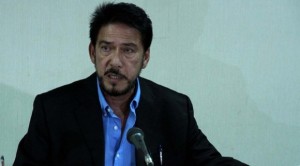Bilibid raid revives call for death penalty
MANILA, Philippines–Sen. Vicente Sotto III is proposing a return of the death penalty for “high-level drug traffickers” to prevent the country being turned into a hub for the trade in illegal substances.
Sotto made the proposal following the raid carried out by the Department of Justice (DOJ) last Monday on the New Bilibid Prison (NBP) compound where several convicted drug criminals were found to be living in the lap of luxury while still allegedly operating a nationwide drug syndicate.
At a Senate hearing on his proposal to revive the death penalty on Tuesday, Sotto said current laws that impose reclusion perpetua as the most severe form of punishment was “pro-rich” and do not serve as a deterrent to criminals.
He said poor people sentenced to spend the rest of their lives in jail are assigned to do menial jobs like cleaning toilets, but the rich who end up at the NBP enjoy unparalleled comforts and privileges.
Sotto said the DOJ raid on the NBP compound, which exposed the luxurious lives that the moneyed convicted criminals continued to lead behind bars, underscored his arguments for reviving the death penalty for drug cri
Article continues after this advertisementOnly in PH
Article continues after this advertisementWith the kind of freedom allowed to them, these convicted traffickers are able to continue to run their drug operations even behind bars, he said.
Sotto claimed that international drug traffickers rejoiced when the Philippines repealed the death penalty.
“It’s only here in the Philippines, this part of Asia, where there is no death penalty for drug trafficking, which is why they manufacture the drugs here,” he said.
But the Catholic Bishops Conference of the Philippines (CBCP), Amnesty International and Philrights rights groups rejected Sotto’s proposal, even if he proposes to apply the death penalty only to big-time drug traffickers.
“The CBCP and the church for that matter is very consistent that we’re not going to choose the kind of people we’re going to kill,” said Fr. Jerome Secillano, executive secretary of the CBCP’s permanent committee on public affairs.
To prevent criminals from operating, the state should enhance law enforcement, Secillano said.
He also read a statement from CBCP President Archbishop Socrates Villegas, which cited the imperfection of the country’s judicial system as one of the arguments against the death penalty.
“The death penalty, once executed, is irreversible and no repentance or regret can ever make up for the horrible injustice of a person wrongfully executed,” read the Villegas statement.
Sen. Aquilino Pimentel III, whose ex-senator father and namesake fought for the repeal of the Death Penalty Law, also cited a recent report from China where a teenager who was executed under the country’s death penalty law was exonerated of the crime 18 years after being convicted.
But Sotto argued that China regularly executes people and provides suspects with little time to appeal death penalty sentences.
